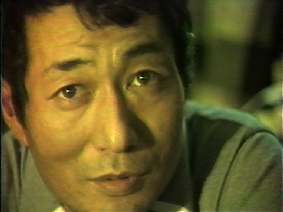 | Born in 1935 in (Japan). Died in 1983 | Biographie Liste expositions |
 | Born in 1935 in (Japan). Died in 1983 | Biographie Liste expositions |
Shuji Terayama was born on 10 December 1935, in Hirosaki, in Japan. He is considered to be one of the most prolific and politically active artists in Japan, recognised for his work as a playwright, writer, director, video maker, sports writer and photographer. He has published over two hundred books, and directed around twenty films (short films and features). In high school, he founded several literary journals in which he published his first poems: haiku and tanka. His literary inclinations earned him early recognition, and in 1954 he was awarded the “New Poetry” prize from the magazine Tanka Kenkyu (a Terayama Shûji prize was later instituted, in 1996, as an award for tanka compositions). In the same year of 1954, he entered the prestigious Waseda University. He very quickly deserted the benches of the faculty, however, owing to health problems. It was at this time that he discovered European literature – Antonin Artaud in particular, and Lautréamont's Songs of Maldoror, which were important literary influences for his work. Five years later, Shuji Terayama left his region of origin for Tokyo, where he lived a bohemian lifestyle in the disreputable neighbourhood of Shinjuku. He worked in bars and gaming houses, which left him a little time to devote to poetry. Shuji Terayama sourced the inspiration he needed to write from the city. He got to know a lot of people and was soon integrated within Tokyo's artistic microcosm (for instance, he met the masters of buto, but also the film producer Eiko Kujo).
From then on, he started to write sports commentaries on boxing and horse racing, and published his first play, entitled Chi wa Tatta-mama Nemutte-iru [Blood is sleeping while standing, 1960]. He wrote radio plays and launched his cinematographic career with an experimental short film, Catology (1960). It was also at this time that he collaborated as a scriptwriter with director Masahiro Shinoda. This work was to win awards on two occasions, in 1964 and in 1965. In the same year, he signed his first novel, Ah, kôya [Ah, wilderness], which was translated and published in French and German. In 1967, Shuji Terayama, his wife Eiko Kujo, painter and designer Tadanori Yokoo, director Kaizo Hayashi, playwright Yutaka Higashi and several other artists, formed Tenjo Sajiki; a theatre troupe whose name was inspired by the title of Marcel Carné’s film Children of Paradise (1945). Until 1983, the troupe toured regularly to Europe and the United States.
But the 1970s also marked a turning point in Terayama’s cinematographic production. He directed around twenty films that were almost all acknowledged and awarded prizes at art-house film festivals. His first feature film Throw Away Your Books, Go Out into the Streets! (1971) won the Grand Prize at the Mostra Internazionale del filme d'Autore in San Remo in 1972. His second feature film Death in the Country (1974) was in official competition at Cannes in 1975. In 1976 he was a member of the jury at the Berlin International Film Festival. Between 1982 and 1983, he maintained videographic correspondence with Shuntaro Tanikawa (Video Letters). Shuji Terayama died on May 4th 1983 at the age of 47.
Lou Svahn